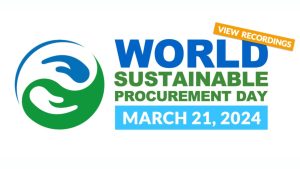By Erica Bosio, Programme Manager: Growth Analytics, Development Economics Vice Presidency, World Bank, and
Emilia Galiano, Private Sector Development Specialist, and
Nathalie Reyes, Operations Analyst: Private Sector Development, World Bank
Governments around the world are wondering how to save their small- and medium-sized enterprises during the economic downturn caused by the coronavirus (COVID-19). Look no further: just pay your bills on time. Public procurement represents approximately 12% of global gross domestic product (GDP). If governments paid all receipts due to their contractors within 45 days, between $1 trillion to $4.65 trillion in fresh liquidity would enter the private sector, supporting firms’ cash-flow needs and preventing them from accessing credit. This is not trivial. It is of the same order of magnitude that G20 countries have so far committed ($6.3 trillion) for fiscal support measures to alleviate the effects of the pandemic.
Speed is of the essence during crisis response. But this is not usually a characteristic of the public sector, especially when it comes to paying bills. Data from the World Bank’s contracting with the government indicator shows that procuring entities take, on average, 14 weeks (about 100 days) to process the final payment for public works contracts. Payment times vary broadly, from 7 days in the Republic of Korea to 760 days in São Tomé and Príncipe. When calculating the size of the accounts payables in the 146 countries that delay their payments on completed public procurement projects beyond 45 days, the number ranges between $1 trillion to $4.65 trillion, depending on whether procuring entities have piled up outstanding invoices from previous years.
Paying the private sector on time for work already done prevents companies from taking up debt in order to survive. The correlation between the two variables is clear: faster payment of bills by governments is associated with fewer firms needing a loan (Figure 1). An earlier blog discusses several other options for firm financing that do not involve piling debt burdens.
Figure 1: Payment time vs. % of firms not needing a loan
Note: The sample includes 144 countries with data from the World Bank’s enterprise surveys, except Venezuela, which is a major outlier in payment delays
More importantly, fresh money is necessary to support companies facing government-mandated lockdowns and collapsed demand. Recent analysis shows that the survival time of small firms in Southern Europe and emerging markets during the pandemic ranges between 8 weeks (for retailers) and 19 weeks (for chemicals and plastics manufacturing companies). Without an inflow of fresh money to cover their fixed costs, most companies will have to shut down within two to five months.
To address sector-specific challenges, the World Bank Group has prepared a package to strengthen the COVID-19 response in developing countries. For example, in North Macedonia, the government and World Bank are activating €50 million from an emergency funding mechanism (the Local Roads Connectivity Project) to quickly disburse funds in support of micro-, small- and medium-sized enterprises to help them pay salaries over the next two months. In Tunisia, the World Bank has reallocated $100 million from the existing portfolio to finance grants to small- and medium-sized enterprises. In Ecuador, the World Bank has committed $506 million to, among others, remove barriers to private sector development and to support economic recovery.
Governments should start paying outstanding invoices on time to provide companies with the money they need to survive the health crisis and the recovery period that will follow. This step is needed now, with the private sector facing an unprecedented crisis. Moreover, the timely payment of bills to businesses should be standard practice that all procuring entities follow, through the recovery phase and beyond. Paying companies within a reasonable amount of time for work they have delivered should not be an emergency measure. It should be the norm.


























